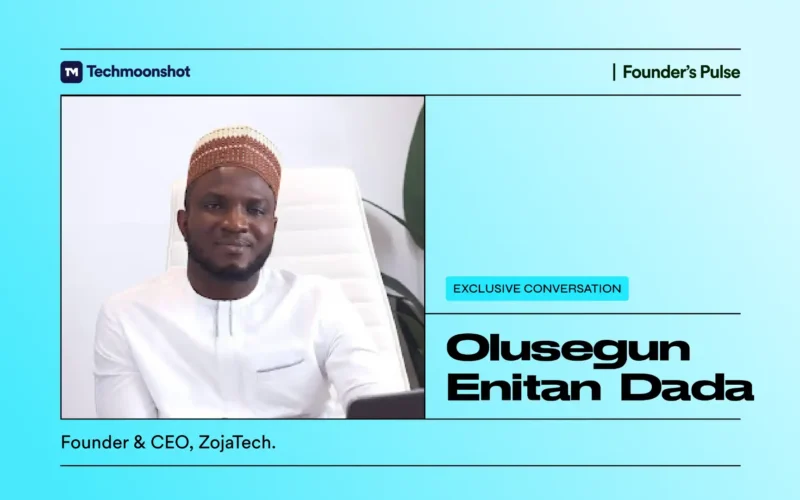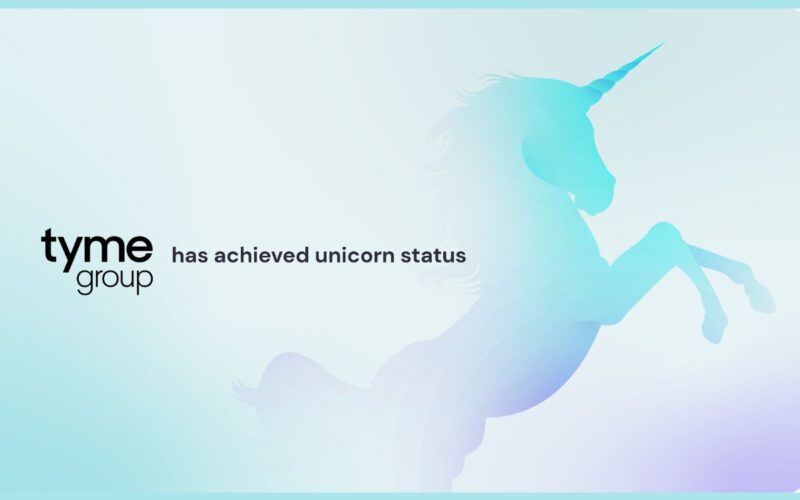Olusegun Enitan Dada (OED) is a serial entrepreneur who has built four successful technology companies across Africa over the past 15 years. Beginning with IT Horizons in 2009, he went on to found ZojaTech, ZojaPay, and co-founded Smartsend Finance, each addressing a unique aspect of Africa’s digital transformation. His companies span enterprise ICT solutions, software development, venture building, international remittances, and peer-to-peer financial inclusion.
What sets Dada apart is his methodical approach to spotting market gaps and creating scalable solutions that tackle real challenges faced by African businesses and consumers. From providing cybersecurity infrastructure to multinational corporations to enabling cash delivery for underserved communities, his ventures reflect a deep understanding of Africa’s diverse technology landscape.
In this exclusive conversation, he shares the journey that shaped his entrepreneurial career, the lessons learned from building multiple companies, and his vision for technology’s role in Africa’s economic development.
What inspired your journey into entrepreneurship, and how did it lead to founding multiple companies?
My journey into entrepreneurship started out of necessity, not a grand plan. Back in 2009, while still in school, I offered tech training to university students who were struggling with high costs and limited access. At the same time, I noticed Nigerian businesses grappling with basic ICT needs — reliable networking, cybersecurity, and IT support were either unaffordable or poorly delivered.
Rather than complain, I chose to solve these problems. That’s how IT Horizons was born, later expanding from Lagos to Ghana and the UK. From there, each company followed the same pattern: ZojaTech to deliver niche software where quality developers were scarce, Smartsend Finance to fix the frustrations I faced with remittances, and ZojaPay to close financial inclusion gaps in Nigeria’s retail markets.
Can you tell us about your four companies and their missions in Africa’s tech ecosystem?
Each company serves a distinct part of the technology value chain, but all share one mission: enabling digital transformation.
- IT Horizons provides enterprise-grade ICT solutions — networking, cybersecurity, cloud, intelligent building systems, and IT infrastructure management. We support both multinationals and growing local businesses that need strong technology foundations.
- ZojaTech is our product arm and venture studio. We design and roll out niche products like Mance (business performance) and Revvex (financial & budget management), as well as custom solutions for logistics, healthcare, and beyond.
- Smartsend Finance delivers fast, affordable international money transfers for Africans in the diaspora and at home. Unlike traditional remittance services, we offer instant transfers with transparent rates.
- ZojaPay, launched in late 2023, is a peer-to-peer financial inclusion platform. Through our agent network and mobile tools, everyday Nigerians can request cash delivery, pay with QR codes, and access other financial services, especially in underserved communities.
Together, they cover the spectrum from infrastructure to financial access.
How do your companies differentiate themselves in their respective markets?
Our key differentiator is combining local insight with international standards. Many providers either bring world-class solutions unsuited to African contexts or local solutions that lack global quality. We bridge the two.
- IT Horizons delivers solutions tailored to Nigerian culture, regulation, and infrastructure, while meeting global security standards.
- ZojaTech builds for Africa’s realities: intermittent internet, diverse payment methods, and multilingual users.
- Smartsend Finance wins on speed and transparency, instant transfers, upfront pricing, and UK regulation for trust.
- ZojaPay pioneered a peer-to-peer model: anyone with a smartphone can become an agent, creating a 24/7 financial network that banks cannot match.
What role does technology play in driving your business strategies?
Technology is both our product and our competitive edge. We’re not just “tech companies”; we’re companies that strategically use technology to solve problems others can’t.
At IT Horizons, we partner with global leaders such as Cisco and Microsoft, integrating their systems while adapting them to address Africa’s power and security challenges. ZojaTech is product-first and uses agile and cloud-native development to deliver faster than traditional software houses. Our internal systems are as advanced as the products we build for clients.
For our fintech, technology is the enabler of scale. Smartsend Finance integrates with multiple banking networks via APIs, employs real-time fraud detection, and uses blockchain for transaction transparency. ZojaPay applies biometrics, geolocation, and machine learning to efficiently match cash requests with nearby agents.
What’s the most challenging business decision you’ve had to make?
Launching ZojaPay was the toughest decision. We spent two years on development and regulatory approvals while competitors launched simpler products. The pressure to release early was immense.
But fintech demands reliability and compliance. A rushed launch could have destroyed trust overnight. We chose to wait until we had licensing, fraud-prevention systems, partnerships, and a strong agent network in place.
This delayed entry cost us early market share but gave us credibility and trust. The lesson: in regulated industries, it’s often better to be second with a strong foundation than first with a fragile product.
What emerging technologies or trends are you most excited about for African markets?
I’m excited about AI designed for African realities. Think credit scoring using mobile data for the unbanked, or AI predicting supply chain disruptions from traffic and power outages. At ZojaPay, we already use machine learning to match users with nearby agents in real time.
I also see blockchain as transformative — not just for crypto, but for cross-border payments, supply chain transparency, and identity in low-trust environments. These are technologies that deliver practical, immediate impact.
How do you approach balancing innovation with regulatory compliance across different countries?
In Africa, regulatory compliance is innovation. Companies that navigate complex, evolving rules gain a significant edge. We involve regulators from day one. For Smartsend Finance, we pursued UK FCA approval before writing our first line of code. For ZojaPay, we worked closely with the Central Bank of Nigeria throughout development.
Regulators want innovation to thrive, but they need assurance on consumer safety and financial stability. By treating them as partners, we often gain valuable insights that improve our products. We also rely on compliance technology — including automated reporting, real-time monitoring, and full audit trails. These are not just requirements; they’re operational advantages that help us scale responsibly.
What challenges do your teams face working across diverse African markets?
The biggest mistake is to treat Africa as one market. Nigeria, Ghana, Kenya, and South Africa each have unique regulations, consumer behaviors, and business cultures.
- What works in Lagos doesn’t always work in Accra. Nigerians embrace agent banking, while South Africans expect card and mobile money. Kenya’s fintech regulations are ahead of most.
- Internet remains patchy, so we design all apps to function on 2G and intermittent networks. That constraint actually makes our products more efficient.
- Language and culture matter. An interface that works for English-speaking professionals might fail for French-speaking rural merchants.
- Currency fluctuations and cross-border restrictions add complexity, especially for Smartsend Finance, which spans multiple markets.
How do you address talent scarcity and skills development in the African tech ecosystem?
Africa has incredible talent, but there’s a gap between available skills and industry needs. Many can code websites, but fewer have experience in enterprise systems, fintech, or cybersecurity. We hire for potential and attitude, then invest in upskilling. Some of our best engineers joined as graduate trainees and developed under the guidance of senior mentors, supported by international certifications.
We also partner with universities to make training more practical. Academic programs often lack hands-on exposure to modern tools, and we help bridge that. Brain drain is real, but also an opportunity. Many diaspora engineers want to give back or return home. We’ve brought some into our teams, blending global best practices with local execution. Retention stems from creating the right environment where people want to grow, including competitive pay, challenging projects, and clear career paths.
What’s your vision for the future of fintech in Africa?
Africa will leapfrog traditional banking, just like it leapfrogged landlines with mobile phones. The winners won’t be copycats of Western fintechs; they’ll build for Africa.
- Embedded finance will dominate. People won’t download yet another app; services will be integrated into the platforms they already use.
- Cross-border payments will surge under AfCFTA, rewarding companies that can navigate multiple regulatory and currency systems.
- Agent banking will evolve into full financial service hubs, offering loans, insurance, investments, and even government services. ZojaPay is already moving in this direction.
- Central Bank Digital Currencies (CBDCs) will transform payment systems. Nigeria’s eNaira is just the beginning.
The future is inclusive, integrated, and built around African realities.
How do you plan to scale your company’s impact across the continent?
Scaling looks different for each business. IT Horizons expands through partnerships and local offices. ZojaTech delivers remotely through niche expertise. Smartsend grows corridor by corridor as approvals come in. ZojaPay scales virally — every new agent adds value.
Our strategy isn’t just about geography. It’s about building defensible advantages: regulatory moats, network effects, and specialised expertise.
What advice would you give to aspiring entrepreneurs who want to build tech companies in Africa?
Start with problems you know firsthand. Focus on one company until it’s solid with the right team before chasing new ideas. Build for African realities: cash economies, patchy internet, cultural diversity.
Invest early in legal and compliance structures, and network actively in the ecosystem. Be patient with fundraising but aggressive with customer acquisition. Revenue speaks louder than hype.
What’s the one technology trend that will define the future of African business?
Mobile-first AI. Not data centers, but AI on smartphones that millions already use.
Offline translation could bridge language divides, computer vision could support farmers and healthcare workers, and voice AI could open digital access for those with limited literacy. The biggest opportunities lie in AI tailored for Africa’s infrastructure constraints. Whoever cracks that will unlock massive opportunities.
What’s your vision for the future of tech in Africa?
By 2030, I see Africa as a hub for homegrown solutions. My goal is to empower 100 million Africans with digital and financial tools:
- ZojaPay: seamless cash and payments for 50 million Nigerians.
- Smartsend: remittances across at least 10 African countries.
- IT Horizons & ZojaTech: digital transformation for 1,000+ businesses.
With cloud-native systems and AI, we can scale without heavy infrastructure costs. Above all, Africa’s future will be written by Africans solving African problems.
Thank you for talking to us.
Thank you for having me.












